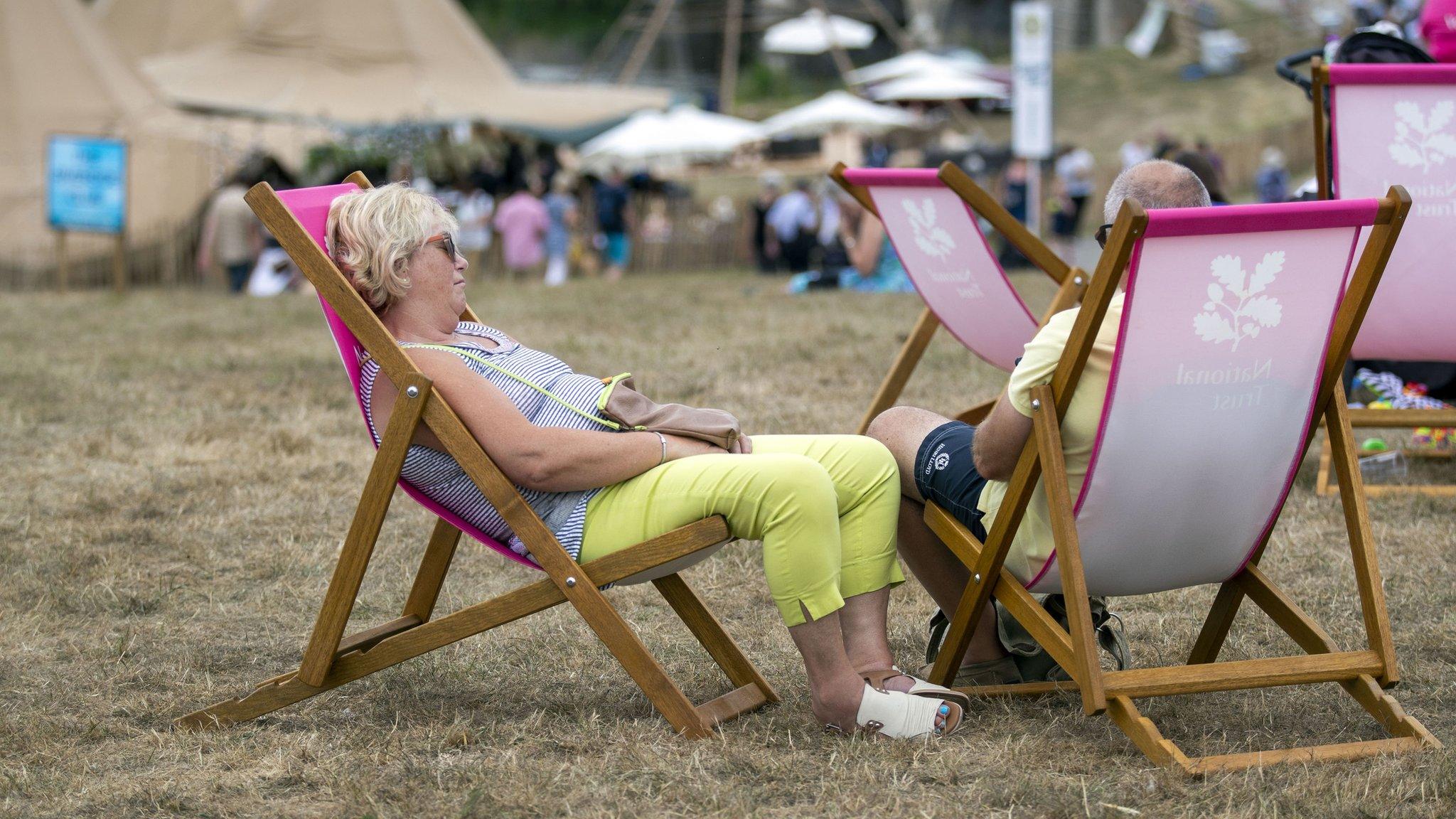Heatwave: Minister holds 'honest and frank' talks with farmers
- Published
- comments
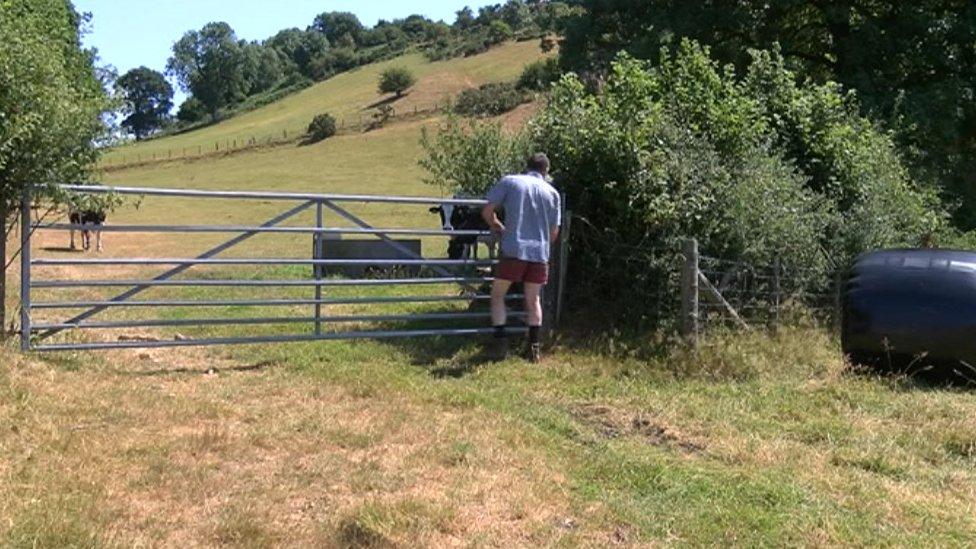
Weeks without significant rain has left grazing land parched
Crisis talks have been held at the Royal Welsh Show as farmers continue to struggle with the heatwave.
They are reported to be finding it difficult to feed animals and grow crops because of the dry, hot weather.
Rural Affairs Secretary Lesley Griffiths agreed to Wednesday's meeting after calls from farmers' unions.
Afterwards, the Farmers' Union of Wales (FUW) described the talks as a positive step and "honest and frank".
John Mercer, director of NFU Cymru, said the dry spell had "caused huge problems for farming communities across Wales and across all sectors".
"As a result of these on farm difficulties we have called for a farm summit to try to find solutions through this troubling period," he added.
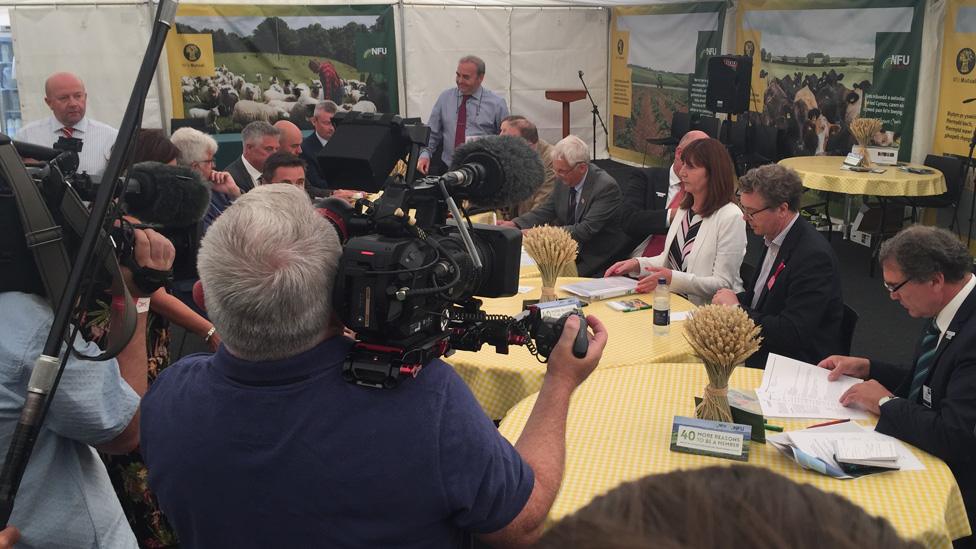
Lesley Griffiths meets farming unions
Ms Griffiths said it had been a "constructive" meeting, involving ideas which the industry and Welsh Government could work on immediately and in the medium term, including bringing forward payments.
FUW managing director Alan Davies said a plan was being put together to tackle the problems affecting farmers but insisted that changes should be made by "the beginning of next week".
It has also emerged that Ms Griffiths has spoken to US agriculture officials about buying in stocks of soya animal food, stranded due to tariffs introduced by China in retaliation to US trade penalties.
Mr Davies said they have held initial talks with US embassy staff about whether the soya could be diverted to Britain for use by Welsh farmers.
'Difficult conditions'
The prolonged dry weather has followed what was a cold and difficult winter for agriculture, as well as rising costs.
According to figures from the British Hay & Straw Merchants Association, there has been a marked increase in the cost of hay and straw. In May 2017 a big bale of hay cost £52 per tonne - the latest figure is £95 per tonne.
Some varieties of straw also nearly doubled in price over the same period.
The price of cattle at livestock markets has fallen sharply in recent weeks - anecdotally because farmers want fewer mouths to feed and water.
Cull cows are animals marked for slaughter - sometimes including older dairy cows. The BBC understands that the price often drops at this time of year but the fall appears more severe than in previous years.
Iwan Jones, director of livestock auctioneer BJP Marts in Carmarthen, said "[There is] concern running forward about the scarcity of hay and feed."
However, he said if it rains soon there should be a turnaround in the price of animals.
One farming family told BBC Wales they are already using their winter stores to feed their livestock.
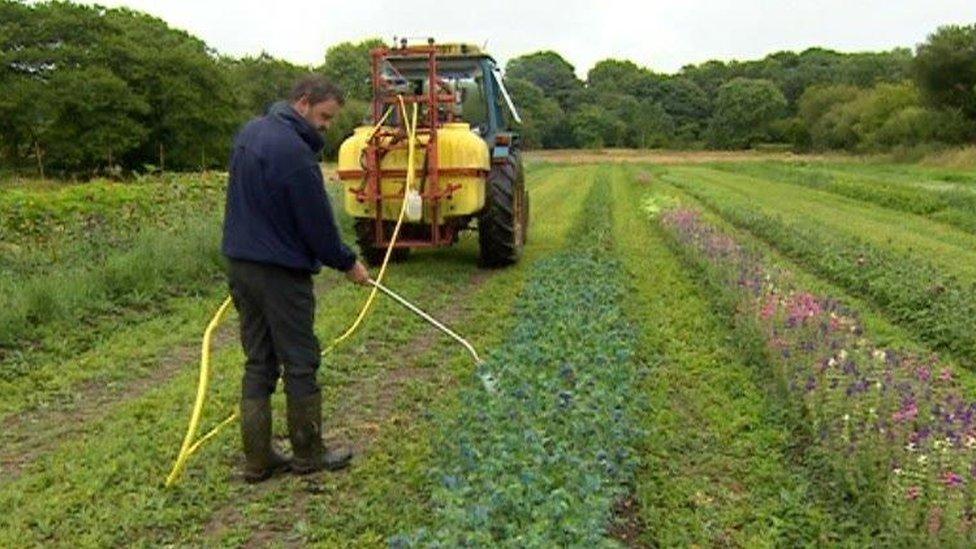
Fruit and flower grower Gary Rees has been hit by both the cold winter and hot summer
Reportedly crop growers are also struggling.
Earlier this year Gary Rees was growing daffodils across nine acres at his farm near Haverfordwest, but the cold weather meant many of them were not tall enough for the supermarkets.
He told BBC Wales his strawberry crop had finished early because of the heat, and his pumpkin crop needs some "serious rain" to grow properly.
- Published4 July 2018
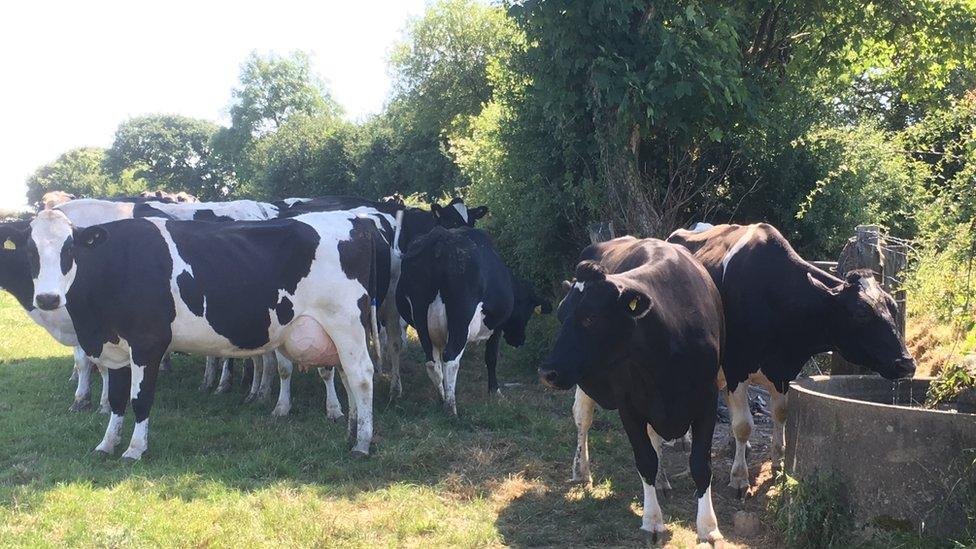
- Published24 July 2018
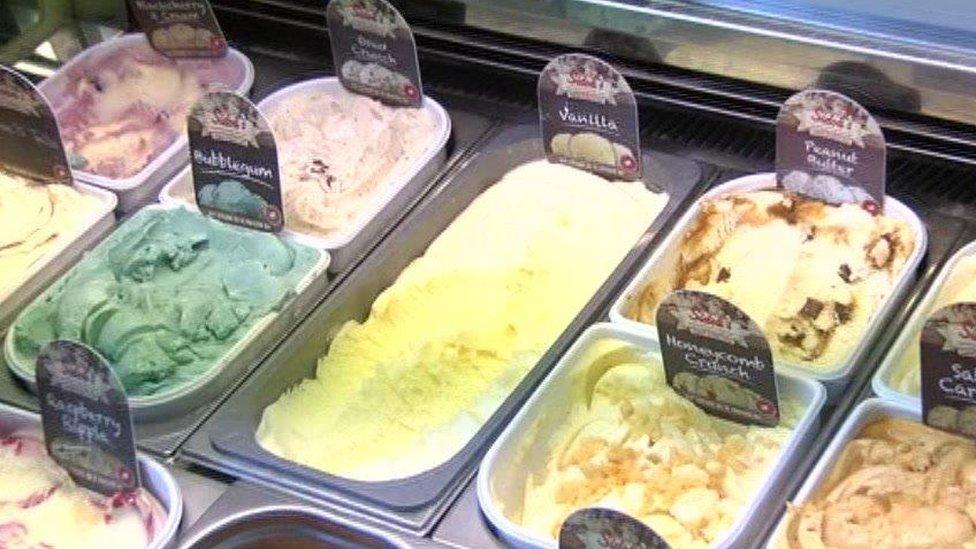
- Published3 August 2018
